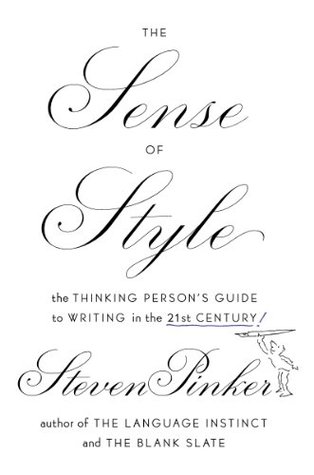More on this book
Community
Kindle Notes & Highlights
Started reading
November 10, 2019
shibboleths,
austere
canons of pedestrian prose to flout them for rhetorical
effect.
We are going to die, and that makes us the lucky ones. Good writing starts strong. Not with a cliché (“Since the dawn of time”), not with a banality (“Recently, scholars have been increasingly concerned with the question of . . .”), but with a contentful observation that provokes curiosity. The reader of Unweaving
mouth. Good writing is understood with the mind’s eye.
conjure a mental image of the act rather than skating over a verbal summary. We find the little girl in
cute or adorable
The use of an old-fashioned word for an old-fashioned garment helps date the snapshot for us, without the cliché faded photograph.
harsh word dead of a beloved sister, no euphemism—has passed away, is no longer with
indubitable
weasel words,
The interweaving of the personal and the philosophical in this excerpt is being used as an expository device, to help us understand the issues that Spinoza wrote about. But it is also a theme that runs through Goldstein’s fiction, namely that the obsessions of academic philosophy—personal identity, consciousness, truth, will, meaning, morality—are of a piece with the obsessions of human beings as they try to make sense of their lives.
With her comic and flinty yet fundamentally sympathetic voice, Mrs. Phillips helped wrestle the advice column from its weepy Victorian past into a hard-nosed 20th-century present. . . .
that good writing does not fit into a single
formula.
mots justes
Roundly praised, intermittently censored, and occasionally eaten. This is a zeugma: the intentional
juxtaposition
of different senses of a single word. In this list, the word books is being used in the sense of ...
This highlight has been truncated due to consecutive passage length restrictions.
(which can be praised or censored) and their physical form (which can be eaten). Along with putting a smile on the...
This highlight has been truncated due to consecutive passage length restrictions.
service. The deliberate use of surprising transitions—colons, dashes, block quotations—is one of the hallmarks of lively prose.8 A lesser writer might have introduced this with the plodding “Here is another example of a column by Mrs. Phillips,” but
interrupts her narration without warning to redirect our gaze to Phillips in her prime. A writer, like a cinematographer, manipulates the viewer’s perspective on an ongoing story, with the verbal equivalent of camera angles and quick cuts. the marital, the medical,
but good prose is enlivened with mome...
This highlight has been truncated due to consecutive passage length restrictions.
In selecting these uncommon adjectives and adverbs, Fox defies two of the commonest
advisories in the stylebooks: Write with nouns and verbs, not adjectives and adverbs, and Never use an uncommon, fancy word when a common, plain one will do.
showing off with fancy words you barely understand can make you look pompous and occasionally ridiculous.
word. According to studies of writing quality, a varied vocabulary and the use of unusual words are two of the features that distinguish sprightly prose from mush.9
a phenomenon called phonesthetics, the feeling of sound.10 It’s no coincidence that haunting means “haunting” and tart means “tart,” rather than the other
voluptuous
titillating
provo...
This highlight has been truncated due to consecutive passage length restrictions.
pulchritu...
This highlight has been truncated due to consecutive passage length restrictions.
bibulous.”
beverage
imbibe
babb...
This highlight has been truncated due to consecutive passage length restrictions.
bobb...
This highlight has been truncated due to consecutive passage length restrictions.
bubb...
This highlight has been truncated due to consecutive passage length restrictions.
burb...
This highlight has been truncated due to consecutive passage length restrictions.
should read with a dictionary at hand (several are available ...
This highlight has been truncated due to consecutive passage length restrictions.
is dead-on in meaning, evocative in sound, and not so obscure that the reader ...
This highlight has been truncated due to consecutive passage length restrictions.
“Do not get carried away with the destructive potential of this tool.”
crystalline
“Politics
and the English Language,” which warned against dehumanizing
From the early years of the twentieth century to well past its middle age. Not even the chronology is described
Yard boys scared that a single gesture near the planter’s wife could leave them hanging from an oak tree. Not “oppression,” not “the threat of violence,” not even “lynching,” but a horrific physical image. We even see what kind of tree it is.
parallel syntax),
recitation of familiar verbiage.


